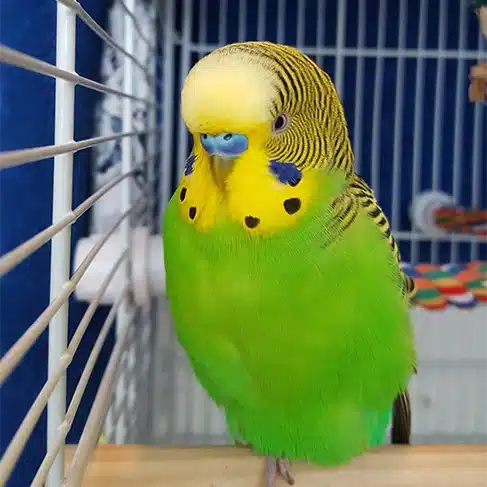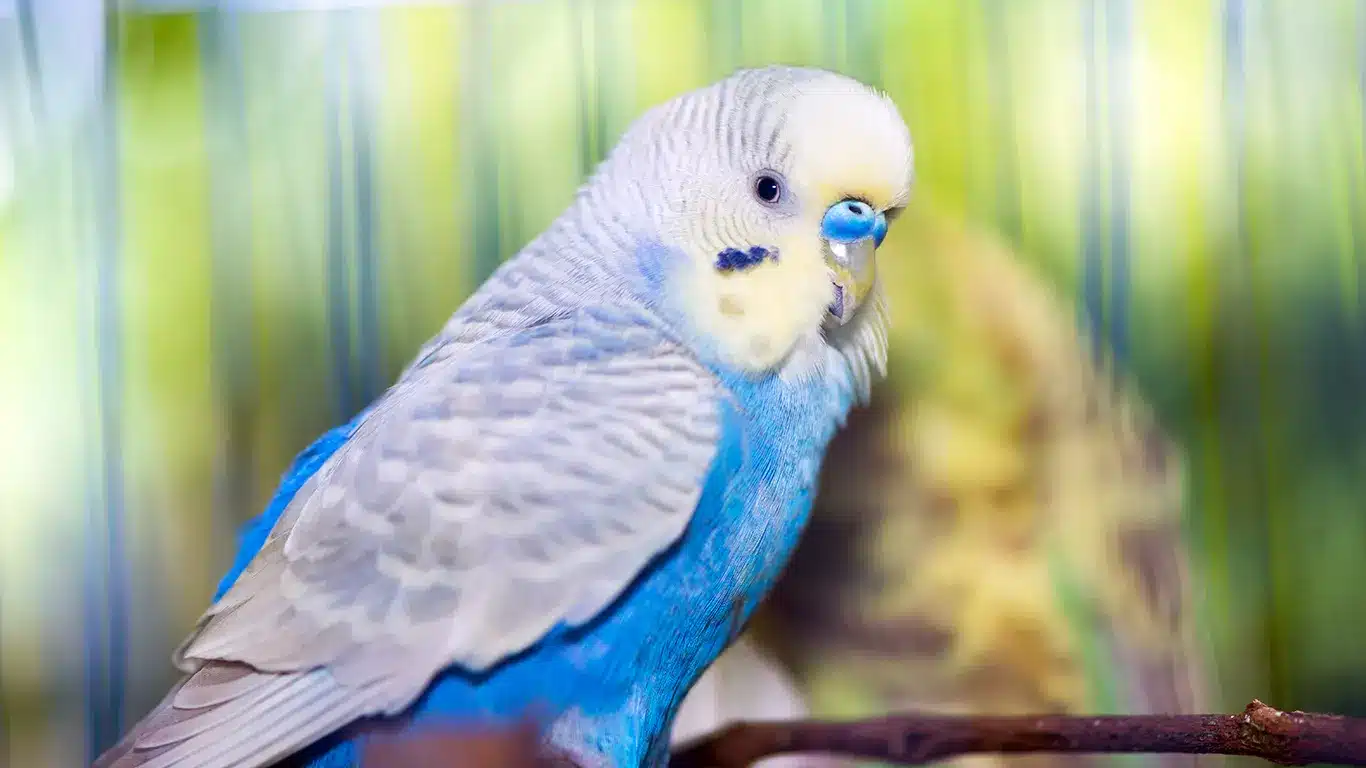Vocalization in any form (chirping, chattering, singing, etc) is the communication tool of budgies. Last month, when my budgie switched to a low-tone chattering, I almost got scared. Are the birds alright? And most importantly, why is my budgie chirping quietly?
There is nothing to worry about if your budgie is chirping quietly. Professionals suggest that budgies in a happy mood often stay lost in their worlds and hum quietly. However, you should have the birds checked if they squeak and make low ramble whimpering noises.
What can you do if your budgies start soft chirping? Catch the details below.
Why Is My Budgie Chirping Quietly?
First, let’s address one thing. There is no such thing as quiet chirping. What you are hearing is low-intensity, soft chirping.
Upon investigating, I have found several reasons that can make a budgie chirp softly. Such as,
Reasons Not to Worry About
Quiet chirping is healthy. Budgies often chirp at a low tune and play around when they are in a good and relaxed mood.
These birds might also use this soft and low-pitched chirping to invite partners for mating.
Budgies can soft chirp during their sleep, too. I see some owners believe that it is a self-defense mechanism for them. Apparently, budgies continue this low rumble to scare off the predators.
Reasons to Worry About
Soft chirping, along with wheezing, is definitely a red flag. There is a high chance that the budgie has an underlying respiratory illness.
Quiet squeaking with soft chirping is also unhealthy. It suggests that something is bothering your pets. The birds might be going through a mental issue or it is an environmental turn-off.
Low rumble chirping during a nap or a good night’s sleep can denote danger, too. Budgies living in an exposed and uncontrolled cage feel at risk from predators. Hence, they can get up from their sleep in the middle of the night and chirp softly out of such vulnerability.
How to Identify Why Budgie Is Chirping Quietly?
Quiet chirping is more than common in budgies. This soft vocalization and communication tool usually poses no apparent health risk. But as I mentioned above, the soft chirping might indicate a red signal in some scenarios.
So, when exactly soft chirping can be considered safe? And when to worry about? Here is how you can investigate the root of quiet chirping in your budgie,
Keep A Diary
Note down each activity they perform daily, including eating, playing, sleeping, etc. Notice whether soft chirping is something the birds have adopted recently.
Track Habits
If quiet chirping is an old habit of your budgies, go through previous notes. You will understand why and when the birds use this vocalization.
In case soft chirping is something new to the budgies, look through the recent habitual changes you have made. The chances are that the discrepancy in the routine or environment has evoked this new behavior in the birds.
Observe The Behavior and Body Language
Do the birds look scared and disoriented? If yes, then the quiet chirping is mostly a red flag.
Soft chirping in between activities is considered a healthy sign. It shows that the birds are content and humming out of happiness.
Consult A Vet
Still concerned about the pets? Take the budgies to a vet and have them checked.
What to Do If My Budgie Is Chirping Quietly?
By now, you already know soft chirping can be either healthy or unhealthy. It means in some scenarios, you might not have to do anything at all. You can just sit back and relax.
Then again, quiet chirping often poses a red flag and requires immediate action. Thus, investigate the cause of this low-intensity vocalization first before taking any serious steps. Here is what I recommend doing about the soft chirping in budgies,
- You need to do nothing if your budgies are chirping due to a content mood. Let the birds play and enjoy their time in their habitat.
- Sometimes, when my budgies are soft chirping, I try to interact with them. It makes them happier and more active. Communicating with them daily and replying to their voice is very important.
- Consult a vet if you notice a squeaking or wheezing noise along with the chirping. Continue the medicines and change the care sheet as suggested.
- The cage setup can upset the budgies and make them stressed throughout the day or in sleep. Secure the perimeter and make the birds feel safe.
- Raising a single budgie is never wise. You better bring the bird a companion and see its behavioral and vocalization changes.
- Regardless of the soft chirping, you must provide the budgies with perches and playing toys. These keep the birds busy and active.
Is It Normal For a Budgie to be Quiet?
Budgies are known for making continuous noises. But what if the birds go quiet all of a sudden?
Honestly, a quiet budgie can be a red alert if it shows other behavioral changes. For example, labored breathing, vomiting, mucus discharge from eyes or noise, etc. In this case, the birdie is just sick and needs medical attention.
However, chances are that the budgie is completely healthy. It is silent because of its heavy personality. Baby and young budgies also prefer to stay quiet. Again, these birds might not make any noise to avoid predators. This is their way of not drawing any attention to themselves.
Why Is My Budgie Making Quiet Squeaking Noises?
Quiet squeaking noises are a concerning sign of a budgie’s vocalization. The primary reason for such vocalization is sickness. According to Jeanne Smith (A Pet Specialist), there is a high chance that the bird is suffering from a respiratory illness.
Usually, a bacterial or parasitic attack on the lungs leads to respiratory infection. It explains the wheezing or squeaking noises.
Malnutrition can weaken a budgie’s immune system which makes them prone to infections and quiet squeaking. But it’s not the main cause.
Take the budgies to a vet for proper checkups and medications.
Conclusion
Soft chirping can be a sign of contentment of the budgerigars. However, take action if the quiet chirping sounds like a plea for help.

I’m Shajid Rahman, a happy owner of 6 beautiful budgies. I take care of this website to share tips, fun facts, and care guides about these birds.
Whether you’re a budgie lover or considering one as a pet, you’ll find helpful info here! I love these cute creatures, so I made this blog for Budgerigar fans. You can expect to get reliable information based on my years of experience. More About Me →

